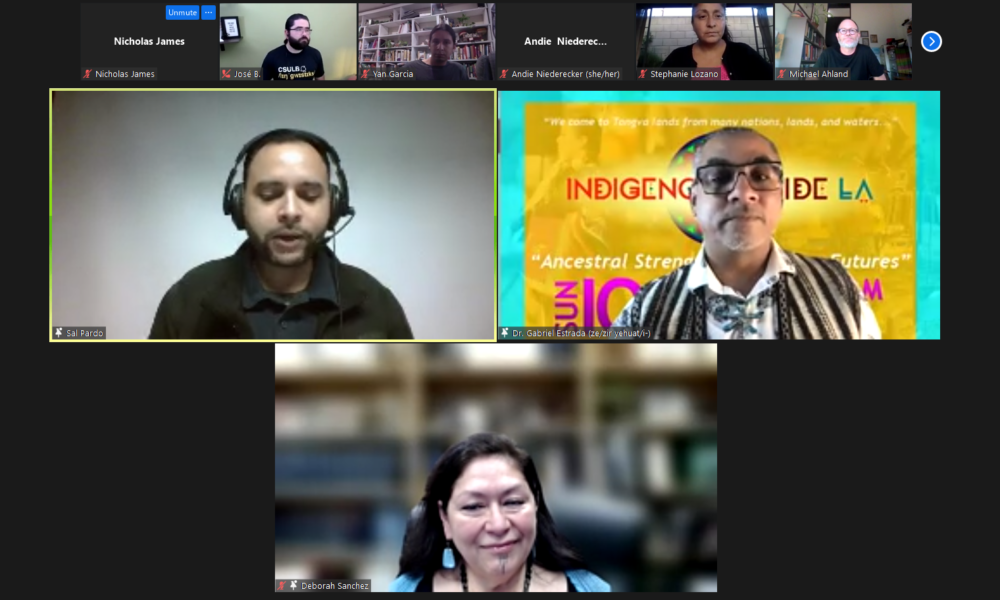In an effort to bring awareness to issues that are affecting marginalized native language communities, the Linguistics Student Association hosted the Indigenous Peoples’ Day Panel via Zoom on Friday, Oct.8.
The event celebrated and honored Native American history and culture while focusing on how communities could help preserve many of the native languages in danger of being lost.
According to the United Nations Human Rights, native languages are becoming extinct approximately every two weeks.
In 2019, out of the 6,700 languages around the world, 40% of them were in threat of becoming extinct, many of which were indigenous languages, according to the UNESCO Atlas of Languages in Danger.
“This is the beginning of the possibility for healing,” Judge Deborah Sanchez said. “It’s a recognition that we are on indigenous land. Some of the history is so horrendous, it cuts so deep that I think that Indigenous Peoples’ Day is a way to acknowledge that we are on indigenous land and that there are indigenous people.”
Sanchez, an American Indian studies professor at CSULB, has been teaching the Šmuwič (Chumash) language to local community members since 2010. She said it is important for community members to explore their roots because many often have traces of native background. She also criticized the government for using tactics that focused on “erasing the indigeneity of people.”
“They did a study recently that people that are indigenous are starting to opt away from the designation as a white person,” she said. “That’s a good sign. It was dangerous to be considered a Native American. If you admitted you were a native person, you had a target on your back, and these are things that have happened over the last century.”
Indigenous communities are more likely to experience violence at a higher rate than other groups, according to the National Institute of Justice in 2016. Nearly 84% of women and 82% of men experienced a form of violence while having less access to necessary services such as medical care and legal services.
Dr. Gabriel Estrada, professor and graduate advisor in the religious studies department, said community members can recognize their surrounding areas when they can start to recognize the origins of those areas, such as the Puvungna land with the Tongva nation.
“This has an interesting ripple effect, that many of the very strong local voices create a need for those of us in the aspera, to understand our own origins, our own land issues, our own languages, and to be part of that conversation that goes back and forth,” Estrada said.
Estrada said it is difficult to know about the depth of the indigenous people and the surrounding land. Books, articles and other sources are often hard to find in the states. Many linguists have had to travel to areas of Mexico, such as Guadalajara and Zacatecas in order to access archives.
“If you’re traveling, ask to go see the archives, talk to people,” Estrada said. “When you travel and connect with the community, it’s a different experience. Even practicing research is a skill that can help people, and then you can share that online or with the community.”




